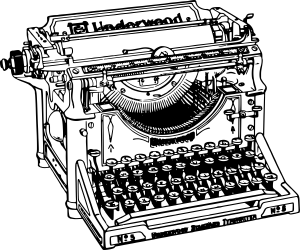Everybody who writes a book needs an editor of some kind. As you choose your route to publishing—independent, traditional, or some combination in between—you need to think about what kind of help you need to successfully publish. An editor is someone who makes you sound like your best self, sing in your best voice. The words on the page need to absorb your readers, communicate your ideas, tell your story in a way that people stick with it. We become attached to our own words. We think we are communicating clearly. We’re sure we’re not using jargon. Uh huh!
Not everybody who got an A in freshman comp is an editor. Please shop around. You owe it to yourself. There are editorial services on line. Go to classes or seminars. Go to the writing center in your city. Ask your friends. Do interview the editor! Talk with her about what kind of editing you think you need. Listen when he tells you what he thinks the project needs. Do talk about the cost upfront. How does she bill—by the hour, the page, the project? Will she let you know when she thinks she’s done as much as possible. Ask as many questions as you can think of. (Look for a post on questions to ask a potential editor, coming here soon.)
If you’re writing a book you want an editor who has edited books!
acquiring, developmental, rewrite, line, copy—editors one and all
- Copy editor—the one kind of editor every book should have—no exceptions ever. Light to heavy, running into line editing. Querying on meaning and facts. Punctuation and grammar, which is more about consistencies throughout than RULES! Do you misuse or misplace adverbs? Do you use a descriptor word too frequently? A copy editor will find your ticks and fix them.
- Line editor—will do more than a copy editor might with language. Finding your voice and keeping it fresh and consistent. Regularizing tenses. Unearthing the topic sentence of any given paragraph or section from the middle or the end. Sometimes (often inside publishing houses) copy editing and line editing are merged into one procedure.
- Rewrite editor. Okay, you’ve got a great idea. It comes from your long experience. You have notes for a bunch of stories illustrating your points. You know what you want your readers to know when they finish your book, but you’re not really a writer. You’re a teacher, or an activist, or a spiritual director, or a therapist or a . . . . And you have something to say. Working with a rewrite editor or a ghost writer can make an idea a book. A rewrite editor, like a ghost writer, can take your ideas and write them up. Traditional publishers don’t pay for this kind of editing. If you want this kind of edit/editor, look for someone with experience. Buy a few hours of their time, work on a bit together, and see where it leads.
- A developmental editor is a coach or a consultant. S/he will work with you to help figure out what should go into your book or proposal. And work with you as you find your voice and write your proposal (if non-fiction and if you’re aiming to go with a traditional publisher) and/or manuscript. A developmental editor is someone who can look at a stack of papers and see the organization and shape of the book. Again, traditional publishers rarely spring for this kind of editing, unless you are very famous or unique at what you do and have to say.
- Acquiring editors, who occasionally do some of the editing described above, are what we call the people who fall in love with your project, sell it internally to their marketing and sales people, talk you up to anyone who will listen. Piss you off by saying you absolutely cannot have the title and cover you want and you have to remodel the baby you both fell in love with. Help position the book and write back cover copy; hold your hand when you’re stuck; tell you to suck it up and accept or make changes they or others who are working on the book are suggesting; explain the publishing process; suggest cover ideas. Suggest new topics or ideas after your first book is a success. Hold your hand when you’re stuck. Urge you on.
Each kind of editing is a particular set of skills a person learns by practicing them. A thorough developmental or rewrite edit of a 300-page manuscript can cost a few thousand dollars. My advice is to hire an editor who is experienced at BOOK editing. Talk with him/her about what you expect to get and what it will cost. Most expensive is not always best, but, as with other things in life you most often get what you pay for.


